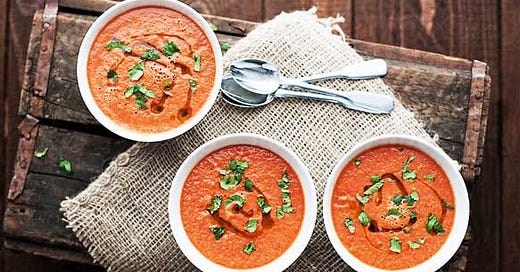A Recipe to Reduce Bloat, Not Weight: FODMAP Defined
What Do Those Letters Stand For? The low FODMAP diet, in a nutshell, is a diet low in fermentable carbohydrates. The acronym stands for fermentable oligosaccharides (fibers, gluten), disaccharides (lactose), monosaccharides (free fructose) and polyols (artificial sweeteners). It was developed for people who suffer from digestive troubles, particularly I…
Keep reading with a 7-day free trial
Subscribe to Charlotte's Book to keep reading this post and get 7 days of free access to the full post archives.



